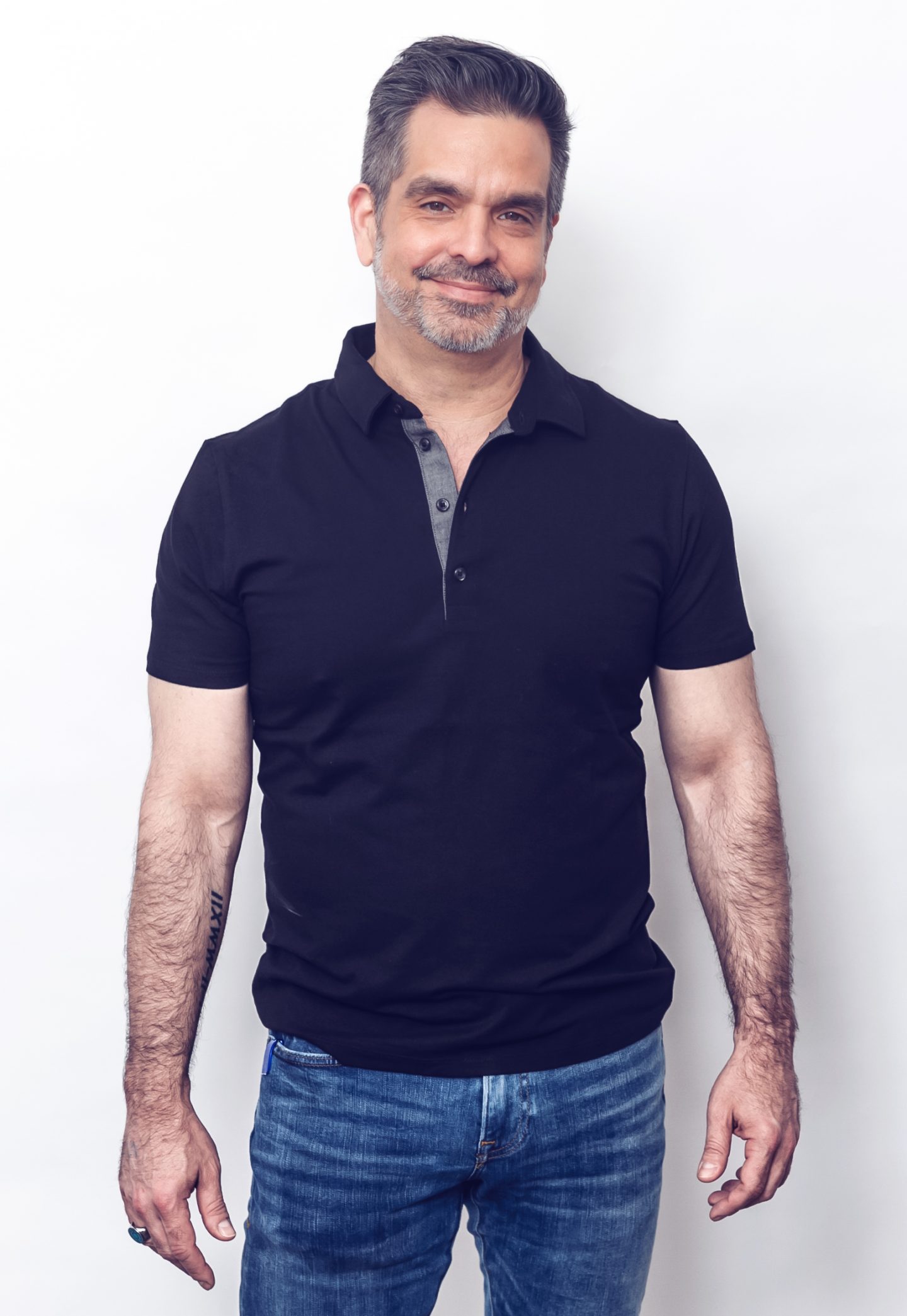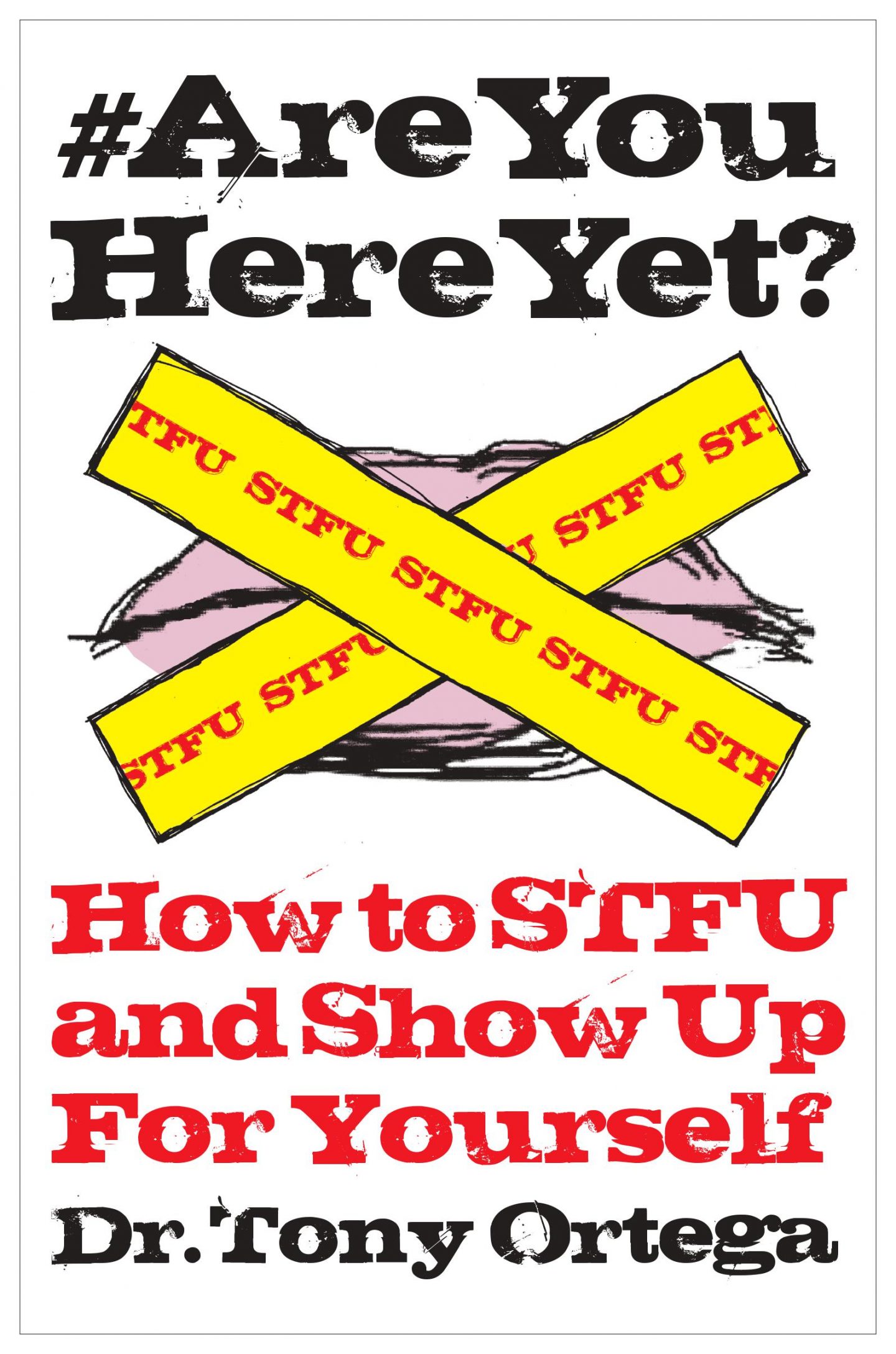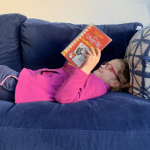With terrifying speed, much of the world’s population is either socially distancing or living in total lockdown because of Covid-19. For many of us, this means the entire family living and working form home while homeschooling children. It’s a stressful situation and relationships will be strained. I think we could all do with some help in this unprecedented situation so I asked Dr Tony Ortega for some lockdown hacks.

Tony (…Dr Ortgea said I could call him Tony) is well placed to offer advice and lockdown hacks. Not only is he incredibly approachable and down to Earth, but he’s a relationship counsellor and clinical psychologist. Based on his experiences he’s written two self-help books, the most recent of which, #AreYouHereYet STFU And Show Up For Yourself went on general release in February of this year.
Added to this, Tony is based in Brooklyn. The City of New York introduced strict social distancing and lockdown rules slightly before the UK so he has more more experience of this than us Brits.
In this Q&A, Tony is very open about the difficulties he is facing living in lockdown. He also offers some great hacks and ideas to help us all get through this.
You’re based in New York City so restaurants, bars etc. were closed sooner than they were in the UK. How has social distancing and lockdown worked so far?
People are very vocal about their discontent and yet, at the same time, trying to rally the city to stay on lockdown. We have seen on the news some stubborn residents continuing to congregate in parks and such. The city itself feels quite different. NYC is usually a city where you feel alive and energised. Since the lock down, the city is a dull murmur. When I have ventured out for a jog or for groceries, I have seen residents being very respectful of the social distancing rules. My assessment of how well it is working; begrudgingly well.
What are the biggest issues people are likely to face living in socially isolated, distanced or full lock-down situations?
For those who live alone (like myself), the lack of actual human contact. The first day or so, I was quite excited for the prospects of getting so many things done without interruptions. As the days rolled by and the reality of this lockdown set in, I was not so thrilled anymore and these projects didn’t seem as exciting to complete. I craved a crowded gym or brunch at my favourite restaurant. I am fortunate that I am still seeing clients over Skype, which has been great. Also, staying in touch with at least 3 people per day (either by phone, text or video) helps tremendously. It’s still very difficult being physically all alone without the possibility of human contact. The biggest weapon a person living alone can use is to monitor and change the internal dialogue.
For those in roommate situations, having to deal with your roommates 24/7, can be a challenge. Having a roommate situation in NYC is quite common as well as having very busy lives. One usually only sees their roommates nights and weekends at most. Individuals have to now work from home and navigate shared living spaces with their roommates and the length of time they have to do so is not something they are used to. If one or more roommates were laid off as a result of the lockdown, the stress of having no income will add more difficulty to this situation. It’s really a call to get to know the people you live with and learn how to interact with them in more meaningful ways instead of the robotic ways we grew accustomed to.
For extroverts, the challenge will be how to meet their social needs without access to their friends and places they frequent. The frequent complaint I am seeing on social media is the inability to go to a gym and work out as well as to hang with your friends over brunch or at the pub. Being able to socialise the way we have grown so used to is not possible today. The extrovert has to get creative to meet their social needs.
Loneliness has to be a big issue, in addition to anxiety about the future wouldn’t you say?
I think anxiety is a bigger issue for some than loneliness. What we are feeling is a global anxiety we have not ever felt. There is so much we don’t know. If we look at the current state of just about anything (the financial world, the entertainment industry, etc.), we really don’t know what the future is going to look like. We are slowly learning about this virus yet there is still so much we don’t know. The reality is that the global landscape will change but we don’t know what it is going to look like. To decrease our anxiety, we would benefit from doing some inner work and looking at how we are showing up today to this pandemic. Are we contributing to the hysteria even through our consumption of it or are we making our best efforts to live our lives under these restrictions to the best of our ability?
Loneliness is real and the person feeling this way would do well to honour what they are feeling and not make themselves wrong for feeling this way. This is a perfectly natural response to the situation we all face. Therefore, find ways to stay connected. Maybe turn it into a challenge of sorts. Today, contact three people whose name starts with the letter D, for instance. I have been seeing folks doing a 14 person Zoom video chat to stay connected. While it is not the safest to be in physical proximity to others, digitally we can stay connected and at the very least, feel a little less lonely.
My family is typical of many in the UK. Two parents are working from home while also having to homeschool their children. Firstly, is conflict and tension inevitable in these circumstances and secondly, what three tips have you got for dealing with conflict in this high-pressure scenario?
I hate to use the word inevitable as, for me, it implies that conflict and tension is not a choice. Tension is a response to something while conflict is something we choose to engage in. In these situations, it would not be uncommon for tension and conflict to arise. The first step would be to recognise that we are all in this very unprecedented situation and our feelings will likely be all over the place. We need to normalise the experiences we are having at the present moment and share this with our children. Allow our children to process their feelings in a safe and non-judgemental environment so as to decrease the chances of conflicts arising. Designating certain sections of the home for school time and work can also ease getting into each other’s spaces. Keeping to school and work schedules in the home also provides that much needed start and end times to maintain healthy boundaries.

What are the main pinch points between couples at times like this? What are your patients reporting their experiencing at this time?
Small living spaces are quite common in NYC. For the most part, folks are not used to being with their partners in a small space for an extended period of time. The most common complaint I am hearing is that their partner is getting on their nerves. Much like the roommate situation I described above, being with the person you live with 24/7 is not something most individuals are used to.
It’s one thing when it’s a planned vacation as you know an end date is coming and the vacation was not forced on you by a global pandemic. Now, when you are “forced’ to stay indoors, the natural tendency to not want to do what we are told kicks up. So many couples are together 24/7 for probably the first time for an extended period of time with no end in sight. This is the biggest issue clients are reporting.
How can these issues be avoided or best managed at a time like this?
Wanting to avoid a negative interaction may lead you to act in ways that could actually create more of it. Therefore, think of conflict as something that could arise but can be worked through if we stay mindful. Reminding yourself this situation is just temporary. There will be an end point at some point, we just don’t know when. None of us have ever experienced something like this before so we are all flying blind, so to speak. Remind yourself that whatever your partner is doing that is getting on your nerves is not being done on purpose. They are in the same boat as you.
What about relationships with children? Relations between parents and children are going to be stressed at this time also, yes?
I think parents and children are going to appreciate school so much more after this. Yes, in any shared living situation, the possibility of stress arising exists. We are now pretty much forced to bond at a different level with our children. This could be the opportunity to forge a stronger bond with them. This pandemic is not something we chose to happen. Let’s make it work to our advantage by deepening our relationships with others.
Of course it may be a tough time for families, but we must not forget about those living on their own, right?
Thank you for not forgetting people like me. Personally, this has been a challenge. I am used to working 6 days a week and interacting with so many people every day between work and working out that being alone day after day with just my cat has become difficult. I crave the ability to shake someone’s hand or give someone a hug. However, the thing I am finding is that friends are consistently checking in with me knowing I am by myself in my Brooklyn apartment. Video chatting with friends has been so helpful. I also make it a point to reach out to at least 1 new person a day. The best thing is that my mother resides alone as well. We use Facebook messenger to communicate and they have this funny face filter so I will randomly use one in the middle of the conversation to make us both laugh.
I know you’ve written about use of social media in some of your books. Do you think this is a good way to keep relationships going at this point in time?
Not only can social media keep relationships going but it can also create new relationships. We have more time now we can connect deeper to our “friends” we have on social media and take off the quotation marks. We can also communicate with more people if we use our social media appropriately. We can also create new relationships with people as so many people are going to social media to connect to the world I think more so than pre-pandemic. Now is the time to use social media to connect with others, not gather likes or sell stuff. We can get through this together and social media will be a great help.

On the subject of your latest book, Are You Here Yet? How to STFU and Show Up For Yourself, Can you say a few words about it? Who will this title appeal to? How does it fit in with its predecessor?
My second book ties in with the first (#IsHeHereYet: Being the Person You Want To Be) as it speaks to being okay with who you are, as well as needing nothing external to make your life better. Both books are empowering the self without having to purchase a darn thing. It’s like working out using only body weight (much like I am doing these days, LOL).
My first book, although geared towards gay men (I have had a lot of heterosexual people and women read it and they loved it), speaks to the concept of be the person you want to be with and let’s see who shows up in your life.
My second book is definitely is geared more generally but specifically for individuals who are on the hamster wheel of self-help/personal development, yet don’t find the fulfillment they’re seeking. STFU holds a mirror to the readers face and forces them to take a look at themselves without all the books/courses/products and answer the question “Are you here yet?” If not, the book is full of tools to get you to answer that question with a resounding yes.
Okay, and getting back to socially distanced life or life in complete lockdown, what do you say to people who think use of tech is no substitute for face to face communications?
Tech is certainly not a substitute for face to face communication, yet in light of what we are experiencing at the moment, it’s better than nothing. The thought of moving my psychotherapy sessions from in-person to remote bothered me a great deal. As a mental health professional, so much more happens in session when I am able to oversee the nuanced non-verbal communication. This is greatly diminished when the session moves to digital. I also don’t feel as connected as I could be in person. However, it’s either that or I don’t work and my clients are happy to see me (and I them) remotely. I know this experience has taught me that tech is not my favourite way of communicating.
You’ve been quite open on your social media channels about your emotions being all over the place right now. Do you think we should be more open about how the Covid-9 crisis is affecting us?
I think the most important thing about people sharing their emotions at a time like this is that it gives others a way to not feel so alone. Just like with coming out stories or testimonials at 12 step meetings, the sharing of our personal trials and triumphs not only normalises the experience for another but it also allows them to not feel so alone in the world. So, even if we don’t do emotions regularly, do it for someone who may need to hear it.
You have posted a picture or two on your social channels suggesting people should do what they can to keep fit while socially distancing. Do you feel this could have a positive impact on both their physical and mental health?
Staying at home means we will be moving less. Therefore, by engaging our bodies and moving around, we will stimulate the production of those “feel good” neurotransmitters. We are not just emotional and mental beings, we are also physical beings (I would also include spiritual into this). We need to take particular care of our physical bodies not only for our mental wellbeing but for the sake of our bodies as well. We need to stay as healthy as possible for the very obvious reasons. We also don’t want to emerge from our quarantine twice the size we were when we started as this would greatly diminish our mental health.
More information
More information about Dr Tony Ortega and his work can be found on his website. To find our more about his latest book, #AreYouHereYet or to buy a copy, visit the Free Association Publishing website or alternatively do a search on Amazon.







